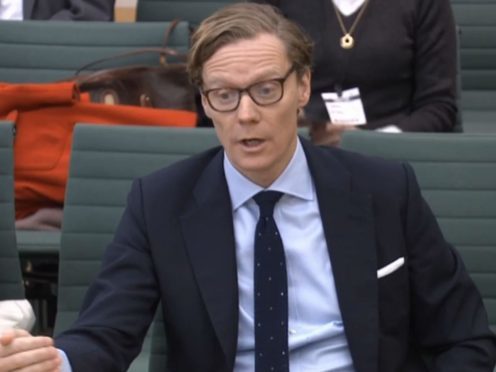Politicians from across the House of Commons have been airing their concerns over the use of Facebook data by the company Cambridge Analytica, which has boasted about using personal information to target voters during elections.
Downing Street released a statement calling the breach “very concerning” on Monday, but further disclosures in a Channel 4 News investigation have shown that the company discussed propaganda, disinformation and extortion tactics with prospective clients.
Liam Byrne, Labour’s shadow minister for digital, called the combination of big data companies and foreign powers an “unholy alliance” which demanded legislation to stop any “interfering in our democracy”.
Why the law must change to stop an unholy alliance of bad companies and bad countries interfering in our democracy #CambridgeAnalyticaUncovered https://t.co/Q6Vy8RTmUB
— Liam (@LiamByrneMP) March 20, 2018
Lord Ashdown suggested making personal data the same as personal property in the eyes of the law, including the right to take a share of any profits.
Cambridge Analytica & data harvesting: the only protection is to set in law that personal data is part of individual property to which they have full property rights and that this cannot be used without their formal agreement, including the right to share in the profits created.
— Paddy Ashdown (@paddyashdown) March 20, 2018
“Cambridge Analytica & data harvesting: the only protection is to set in law that personal data is part of individual property to which they have full property rights and that this cannot be used without their formal agreement, including the right to share in the profits created,” he wrote.
And Darren Jones, a Labour MP on the science and technology select committee, a shared concerns that the forthcoming data protection bill could give a “get-out clause” to companies like Cambridge Analytica.
I've written to @margot_james_mp re concerns that Gov #DataProtectionBill amendments could've given #CambridgeAnalytica a get out clause. pic.twitter.com/7V2rzBjqKr
— Darren Jones MP (@darrenpjones) March 20, 2018
Liberal Democrat leader Vince Cable took the opportunity to question Cambridge Analytica’s possible role in the Brexit vote.
While the leaders of Leave.EU had previously boasted of using Cambridge Analytica’s services, they have since said a contract was never signed.
“Now we need to find out if #CambridgeAnalytics [sic] and leak from #Facebook played a key role in #Brexit #Referendum,” wrote Mr Cable on Twitter.
Now we need to find out if #CambridgeAnalytics and leak from #Facebook played a key role in #Brexit #Referendum. https://t.co/kmAmC0KV6q
— Vince Cable (@vincecable) March 19, 2018
And as the hashtag #DeleteFacebook started to circulate online, the SNP’s Stewart McDonald admitted he deleted his page a year ago and predicted others would do the same.
“Though I maintain an MP Facebook page for constituents, I’m now glad I deleted my personal Facebook page over a year ago,” he wrote.
“Too full of advertising and obscure profiles requesting to be ‘friends’. Quite sure many will be doing the same after #CambridgeAnalyticaUncovered.”
Many MPs praised journalists at Channel 4 News and the Observer for their work in exposing how Cambridge Analytica had both harvested and stored personal data from Facebook users.
“If you care at all about democracy & believe elections should be open & not corrupted please watch this; the story Cambridge Analytica didn’t want you to see,” wrote Labour’s Yvette Cooper, commending journalists for their investigative work.
